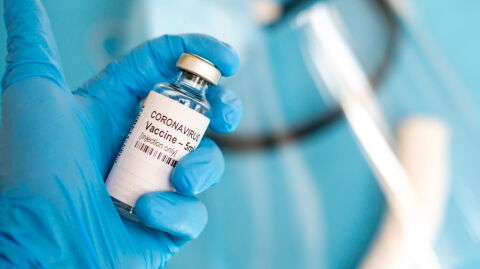Things do not look good: despite some recent progress, reputation-wise, the vaccine from the British-Swedish vaccine manufacturer AstraZeneca is already facing yet more trouble.
Discover our latest podcast
What is it this time? Impurities found by researchers during tests. Critics say that the vaccine should not have been approved at all.
Much higher protein content than would be expected
The controversial AstraZeneca vaccine, which was suspended several weeks ago due to safety concerns for people under 60, is once again under fire.
In a study, a research team at the University of Ulm discovered more than 1000 human and viral proteins, mainly so-called heat shock proteins.
The protein content in the three batches under scrutiny is significantly higher than would be expected from a vaccine of this kind. Scientists disagree about the potential consequences.
Effects of the contamination
For the time being, the study has only been published as a preprint and leaves open any question about possible effects on the vaccination response, or on the efficacy of the vaccine.
The head of the study, Stefan Kochanek, does not think that the higher protein content would have negative effects on patients receiving the active substance. But he clarifies:
However, extracellular heat shock proteins are known to modulate innate and acquired immune responses and to amplify existing inflammatory responses. They have also been linked to autoimmune responses...
Even if the proteins found do not pose any safety concerns for vaccinated people, experts are upset about a much more fundamental point.
Insufficient quality control
According to Kochanek, the unusually high number of proteins confirms that the procedures used for quality control were not extensive enough.
What upsets him is the fact that this deviation was not noticed by the responsible controllers of the European Medicines Agency (EMA) during the authorisation review:
The EMA now has a problem.
The rare but dangerous cerebral vein thromboses are probably not related to this phenomenon, according to him. Nevertheless, there was a lack of quality control.
For this reason, in his opinion, the vaccine should not have been approved at all. The company itself takes a somewhat different view.
The company says that 100 per cent purity is generally never achieved. The company, like other vaccine manufacturers, also works to the highest possible standards.
Kochanek believes that not only AstraZeneca's safety but also its efficacy can be improved by revising its manufacturing process and quality control.















